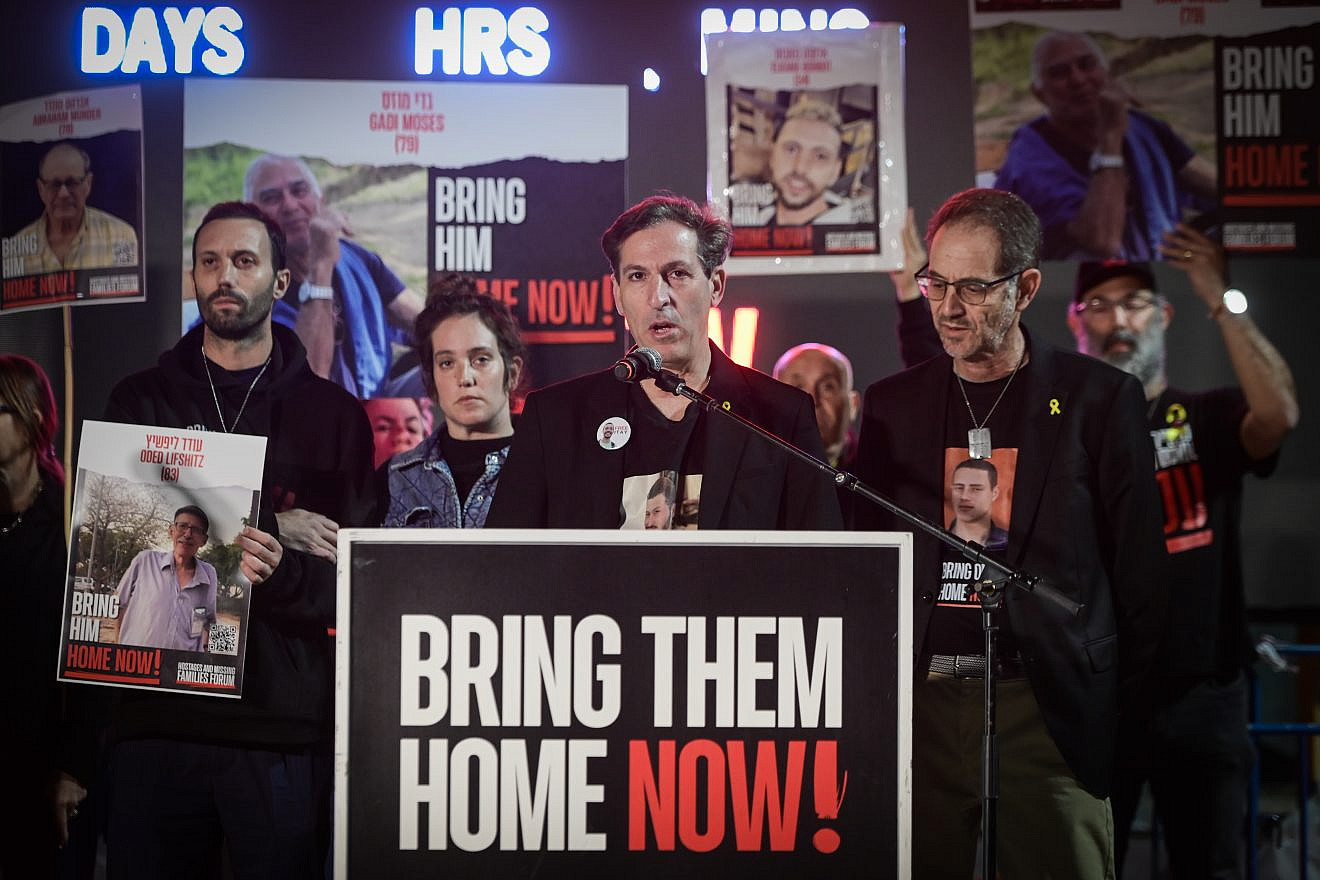I appreciate President Joe Biden’s public announcements and personal display of support for Israel since Hamas invaded Israel on Oct. 7 and the slaughter of 1,200 people and the kidnapping of 240 others. His 24-hour, drop-in visit to Israel stunned many Israelis and American Jews who have watched America’s decline as a positive force in the Mideast; his statements of solidarity with Israel and Jews around the world struggle with the aftermath of the massacre and hostage-taking were most welcome. The movement of two U.S. Navy aircraft carrier strike groups to the eastern Mediterranean was a clear signal to Iran via Hezbollah that the Biden administration has our Israel’s back.
But not all government employees are happy with Biden’s and Secretary of State Antony Blinken’s support of Israel. One, Josh Paul, the director of congressional and public affairs at the Bureau of Political-Military Affairs, resigned, as The Wall Street Journal reported, because “he could not work in support of a set of major policy decisions—including ‘rushing more arms to one side of the conflict’—that he believes to be ‘shortsighted, destructive, unjust and contradictory to the very values that we publicly espouse.’” Thank you for your service, Mr. Paul; don’t let the door hit you on the way out.
Other State Department employees organized a “dissent cable,” a document that allows criticism of American policy that goes via a protected internal channel to the department’s leaders. In other words, it’s a way for entrenched bureaucrats, who cannot be fired, to protest decisions made by appointed officials. Perhaps they should follow Mr. Paul out the door, but principles only go so far when you know your job is protected by union rules.
Now that the president and secretary of state have weighed in on the Hamas war, I have to ask, where is the Department of Justice under Attorney General Merrick Garland in all of this? From where I sit, it’s missing in action. There are American hostages in Gaza, and their lives at risk. Why isn’t the United States involved? Why isn’t the DOJ not using existing laws to protect Americans being held by Hamas?
You may be surprised to learn that U.S. laws allow for the prosecution in the United States of crimes against Americans that have been committed overseas. Other laws address the deaths of Americans overseas as a result of state-sponsored terrorism and the rights granted to American citizens to use U.S. courts to bring the perpetrators to justice, as I did with Iran following the 1995 murder of my daughter Alisa. This power is found in the U.S. Code’s criminal and civil law provisions. One of those provisions is relevant to the war with Hamas because it addresses hostage-taking.
Title 18 USC Sec. 1203 deals with hostages and says in pertinent parts that “whoever … seizes or detains and threatens to kill, to injure, or to continue to detain another … in order to compel … a governmental organization to do or abstain from doing any act as an explicit or implicit condition for the release of the person detained, or attempts or conspires to do so, shall be punished by imprisonment for any term of years or for life and, if the death of any person results, shall be punished by death or life imprisonment.”
This law clearly applies today as at least 10 American citizens are held captive in Gaza.
It is clear that the “whoever” cited in the statute is those members of Hamas who actually participated in the attacks and those who “conspire”—namely, the Hamas leadership: Ismail Haniyeh, safely ensconced in Qatar, a U.S. ally; Marwan Issa, the leader of Hamas in Gaza; and Yahya Sinwar, a Hamas senior leader who plays a significant role in the terrorist organization’s military and strategic operations. And, of course, let’s not leave out the ever-elusive Mohammed Deif, who heads the military wing of Hamas through its Izz ad-Din al-Qassam Brigades.
You may recall then-President Bill Clinton’s 1996 promise to the family of Nachshon Wachsman—an American citizen who was kidnapped and then murdered by Hamas in 1994—that he would bring Mohammed Deif, the mastermind of the kidnapping, to justice. It never happened, and now, almost 30 years later, Deif is still free to murder and take hostages.
Biden’s supportive statements and military posturing must also be backed up by the might of the US justice system. Indictments of Haniyeh, Issa, Sinwar and Deif will send a message. Getting Haniyeh out of Qatar may not be easy because there is no extradition treaty between the United States and Qatar, but Washington has other means to pressure the Qataris if the will is there. And indictments should give pause to Turkey and any other Mideast country that may consider providing a safe haven for these vicious thugs.
The United States has the tools to fight Hamas, but they have to be used. What do you say, Attorney General Garland?


























